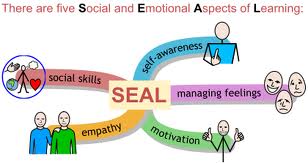Introduction
In today’s fast-paced, interconnected world, the importance of promoting social and emotional aspects of learning (SEAL) in educational settings cannot be overstated. SEAL encompasses a range of skills, competencies, and behaviors necessary for students to effectively navigate the challenges they face in their personal, academic, and professional lives. By integrating SEAL into the curriculum and school culture, educators can facilitate the holistic development of students and equip them with a strong foundation for success in various aspects of life.
The Importance of Social and Emotional Learning
Research has shown that social and emotional learning is crucial for students’ overall well-being, mental health, and academic achievement. SEAL helps learners develop critical skills such as self-awareness, self-management, social awareness, relationship skills, and responsible decision-making. These skills enable students to better understand and manage their emotions, set and achieve meaningful goals, cultivate healthy relationships, make informed choices based on their values, and contribute positively to society.
Benefits of Promoting SEAL in Educational Settings
1. Enhanced Academic Performance: Students who demonstrate strong social-emotional skills are more likely to excel academically through increased motivation, persistence, and constructive problem-solving abilities.
2. Improved Mental Health: Fostering emotional resilience through SEAL helps reduce stress levels, anxiety, depressive symptoms, violence-related behaviors, and substance abuse among students.
3. Reduced Dropout Rates: Research indicates that effective social-emotional learning programs contribute to decreased dropout rates by addressing the root causes of disengagement from school.
4. Nurturing Inclusive Environments: Teaching empathy through SEAL enables students to embrace diversity and foster mutual understanding among individuals from different backgrounds.
5. Preparation for Success in The Workforce: Future employers highly value individuals with exceptional communication skills, emotional intelligence, teamwork abilities – all attributes developed through active engagement in SEAL programs.
Strategies for Promoting SEAL in Educational Settings
1. Integrate SEAL into the Curriculum: Incorporate age-appropriate and culturally responsive social-emotional learning activities across various subject areas to foster well-rounded development.
2. Prioritize Teacher Training and Professional Development: Provide ongoing opportunities for educators to expand their knowledge, understanding, and skills related to implementing effective SEL strategies in the classroom.
3. Create a Supportive School Culture: Encourage a safe, inclusive, and respectful environment where students feel valued and empowered to actively participate in their social-emotional growth.
4. Encourage Student Voice and Agency: Allow students to take ownership of their learning by providing them with choices and opportunities to contribute to decision-making processes within the classroom and school at large.
5. Engage Family and Community Partnerships: Collaborate with families, local organizations, and community members to support an interconnected approach to social-emotional learning that extends beyond the school setting.
Conclusion
Promoting Social and Emotional Aspects of Learning (SEAL) is an essential component for fostering holistic development, enhancing academic outcomes, and preparing students for long-term success in life. By imbuing the educational experience with social-emotional learning opportunities, schools can empower students to lead fulfilling lives – personally, academically, and professionally – and contribute positively to society.





